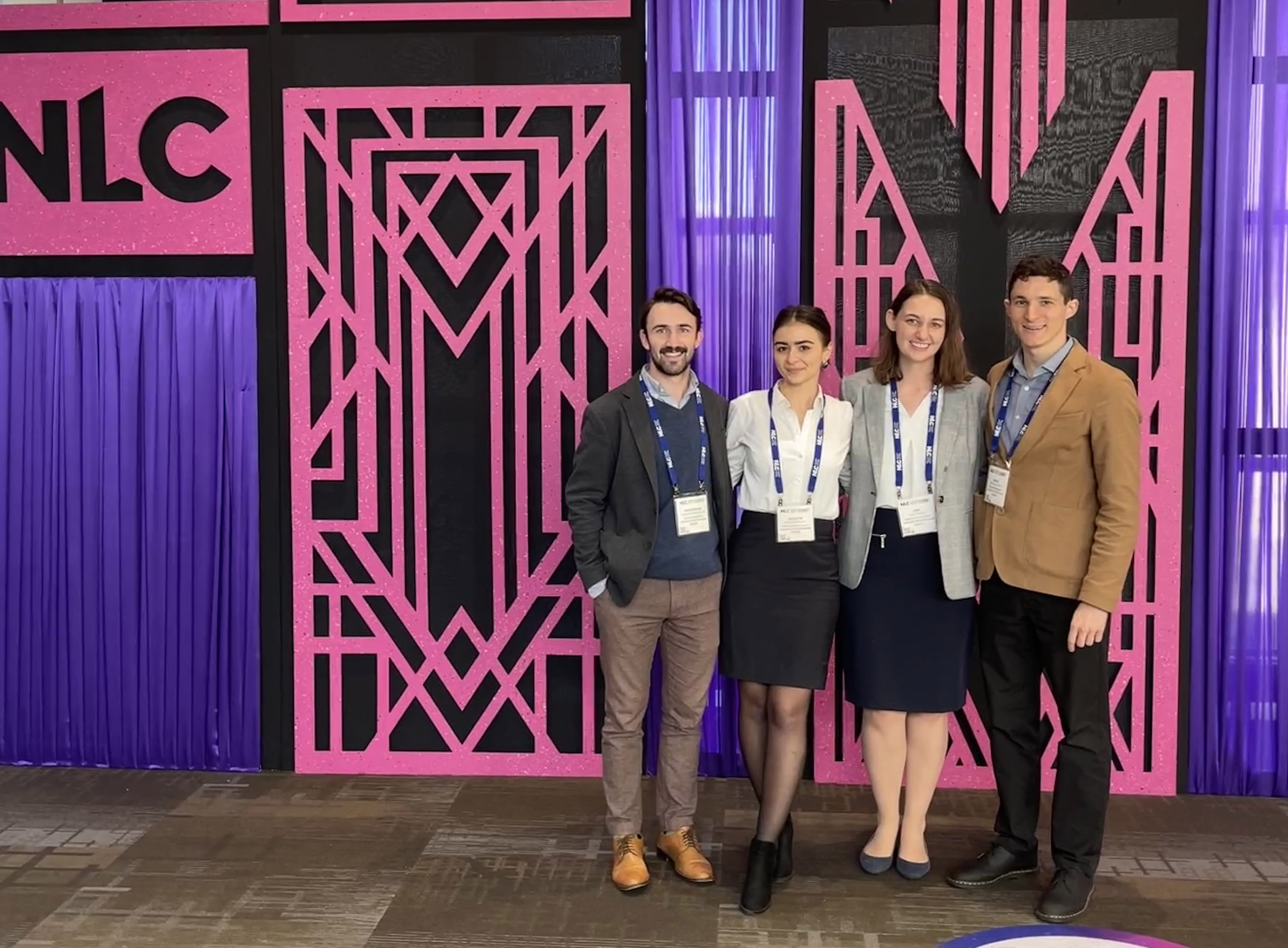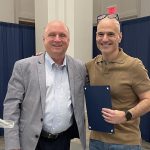Today, some 56 percent of the world’s population lives in cities, and by 2050 nearly seven of ten people will live in urban environments. Innovation is critical for the health, vitality, and resilience of cities.
With this growing demographic in mind, a team of four master of global affairs (MGA) students spent a year researching how local leaders can promote innovation in their communities, a process that included interviews with officials from twenty-eight cities in North America and Europe. In November 2022, the student team presented their resulting policy recommendations at the annual conference of the National League of Cities (NLC), an organization of city, town and village leaders focused on improving the quality of life for their constituents. The students’ report has subsequently been published by the NLC.
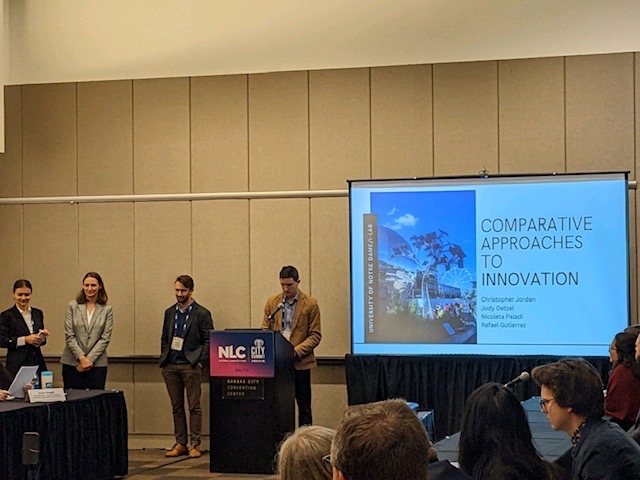
The project is a result of a partnership between the NLC and the Keough School’s Integration Lab (i-Lab), a collaboration that for the past three years has enabled MGA students to consult with the NLC on an intensive year-long project that aims to solve a compelling global challenge.
“Our motivating question was ‘how can cities continue to reinvent themselves as they negotiate very complex global issues?’” said Christopher Jordan, an MGA student from the United States.
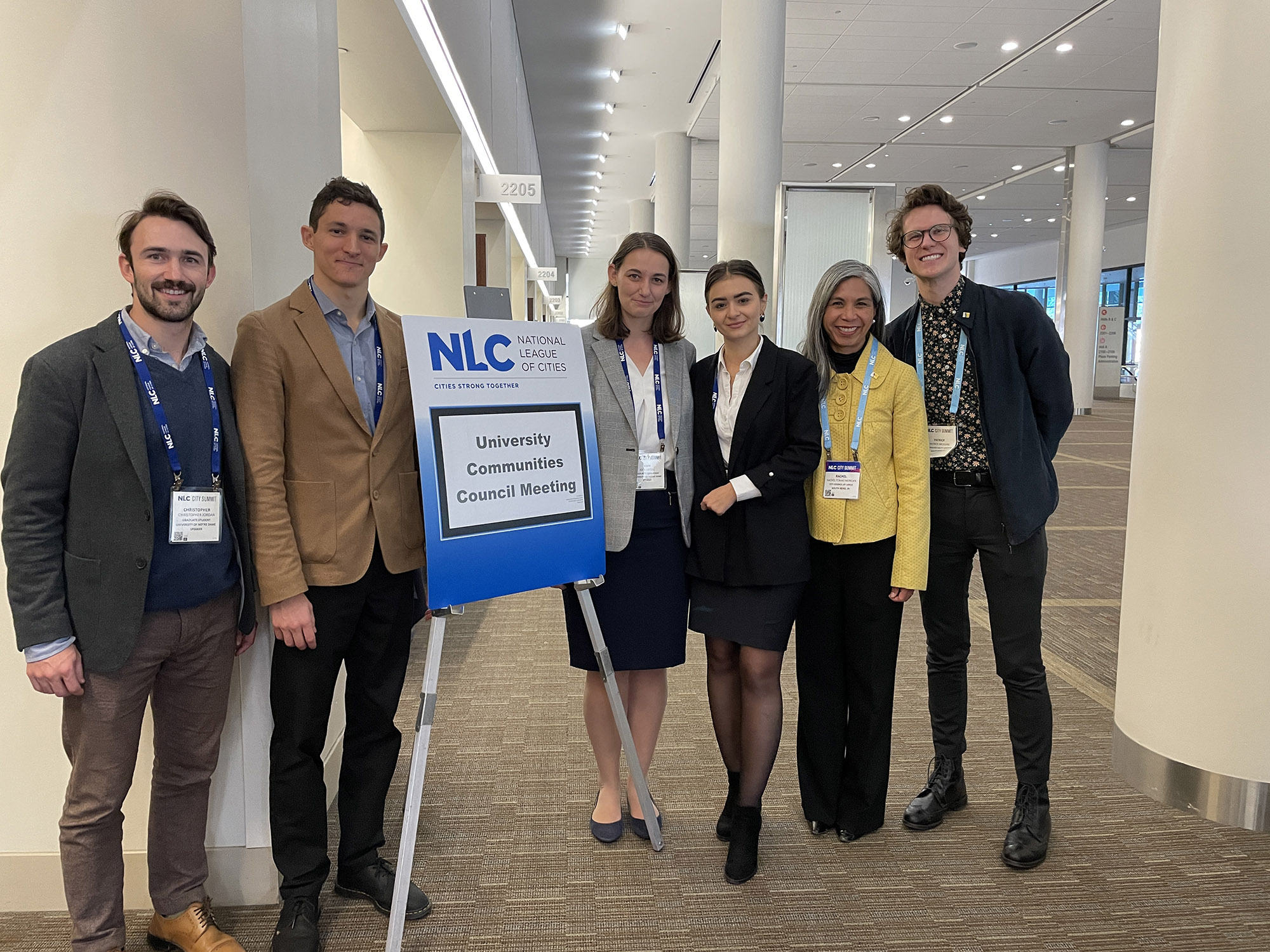
To explore this question, the four students—Jordan, Rafael Gutierrez, Jody Oetzel, and Nicoleta Paladi—began their field research during the summer of 2022 in Edinburgh, Scotland. While headquartered at Edinburgh Napier University they spent a week working with experts in “smart cities”—cities that have technological infrastructures that enable them to collect, aggregate, and analyze real-time data to improve the lives of their citizens. While tapping this expertise, the students also honed their qualitative data analysis skills, refining their interview questions and conducting practice interviews. From Edinburgh the team divided up, fanning across North America and Europe to cities in Canada, Denmark, Germany, Iceland, Portugal, the United Kingdom, and across the United States.
“We prioritized cities that are intentional about incorporating data in decision-making with use of things like smart energy grids and smart sensors,” Jordan said. “But beyond a technological focus, we were also interested in cities that saw innovation as a mindset and a process.”
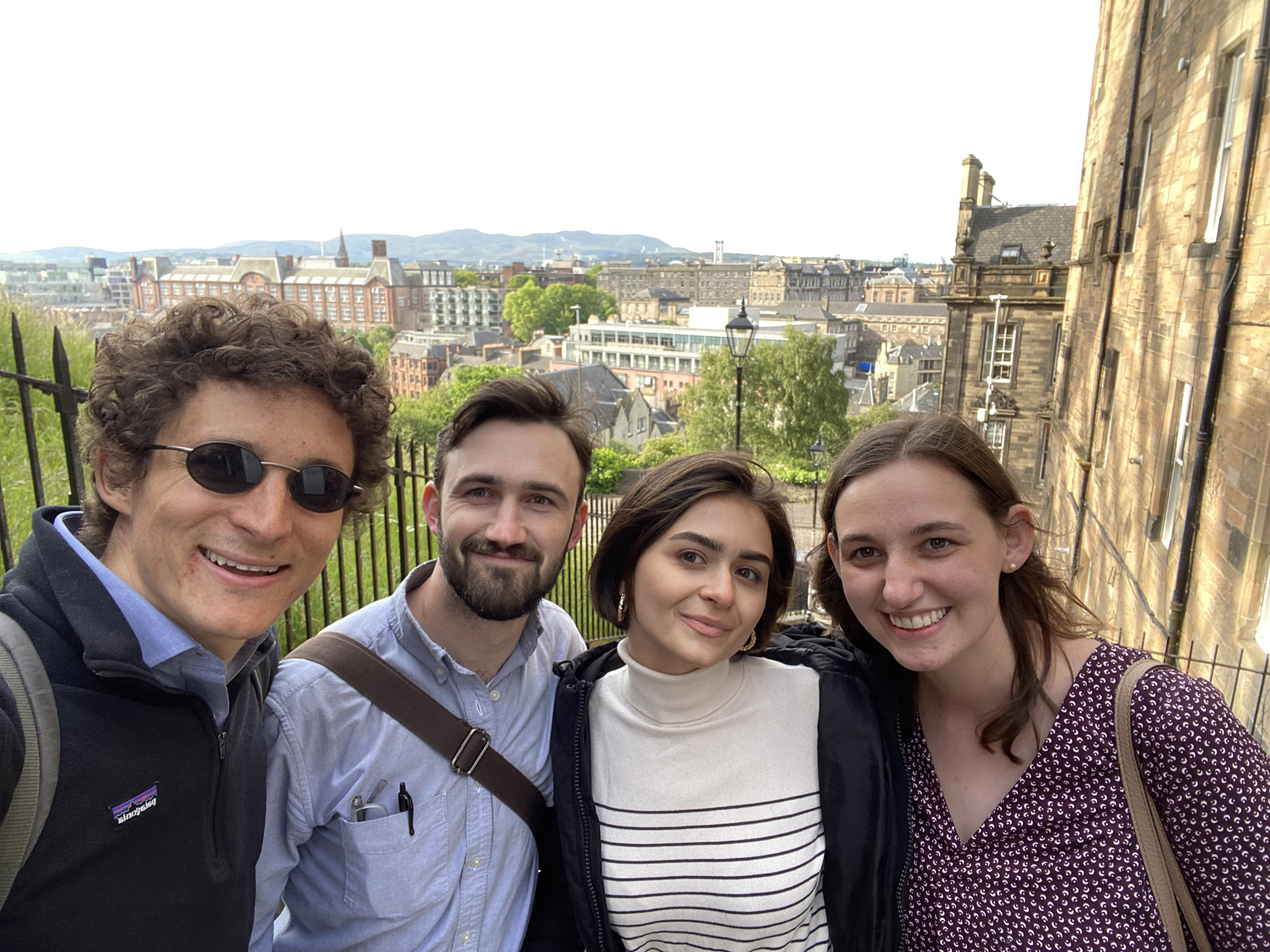
The team’s interviews uncovered that while technology is an important aspect of innovation, putting people first is what makes innovation work.
“We expected conversations to focus on use of data or technology, but it was actually the opposite,” Paladi said. “They were mostly about mindset. Every city we spoke with was adamant about including residents in the innovation process. It was a nice surprise to see the human-centered aspect coming through.”
Another insight that emerged was that cities benefit when they share wisdom.
“It became clear that there is a lot that cities can learn from each other, and they are already learning from each other in lots of ways,” Oetzel said. “Though they’re in different parts of the world, cities such as Long Beach, California; Rotterdam, Germany; and Vancouver, British Columbia are facing similar challenges and have the opportunity to share learning across borders.”
Students also learned about the importance of collaboration among constituent groups within cities.
“Any project that relates to innovation should work with universities, civil society groups, nonprofit organizations, and local community leaders,” Gutierrez said.
Throughout the project, the students were able to work closely with Keough School alumnus Joshua Pine (MGA ‘20), who is now program manager for city innovation and data at the National League of Cities.
“It has been so exciting as an alum to be able to continue to work with the students in the i-Lab,” Pine said. “The students have provided some valuable takeaways, providing not a dry academic report but a document that will help create real change. Sometimes when city officials hear ‘smart’ or ‘innovation’ or ‘data,’terms that feel very flashy and tech-oriented, they aren’t terms that they can relate to. This i-Lab team makes the concept of innovation seem exciting and achievable.”
Lena Geraghty, director of sustainability and innovation in the Center for City Solutions at the National League of Cities, said that the i-Lab team’s academic and professional experience in sustainable development, government policy, and urban innovation was key in ensuring deep engagement of the numerous city leaders who participated in the research.
“Their thoughtful approach and inquisitive minds made this work a success and a useful resource for NLC and our members as they look to embed innovation to solve difficult problems in their communities,” she said.
In the conclusion of their report presented to the NLC, the i-Lab team urges city leaders at different stages of their innovation journey to find inspiration and insight from each other as they work to become more agile, nimble, and responsive to current and future challenges.
“Through adopting a people-centered approach, prioritizing strategy and governance, promoting culture and mindset, and fostering an innovative ecosystem, cities can build their own unique pathway toward innovation.”
An integral part of the Master of Global Affairs program, the Integration Lab prepares students for a global employment landscape that demands highly integrated mindsets and professional skill sets. Student teams partner with high-impact organizations to solve a global challenge, relying on expertise gained through coursework and field experience and produce a final published product. Current partner organizations include Catholic Relief Services, the Center for Strategic and International Studies, the National League of Cities, United Methodist Church Global Ministries, the U.S. Department of State.
